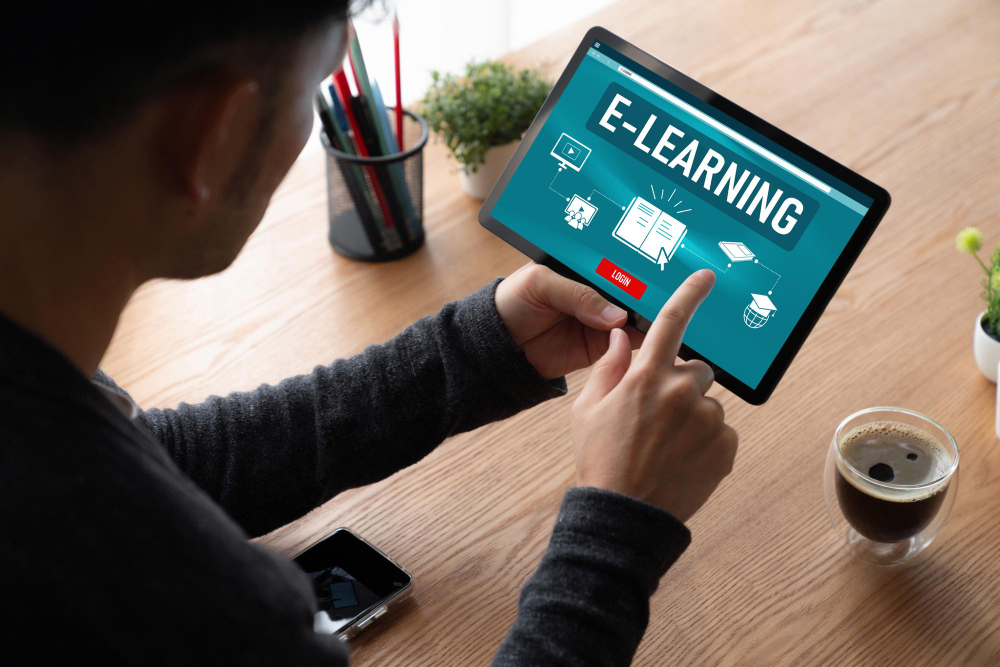
Thursday, 20Nov 2025
Adaptive Learning Technology Transforms Educational Personalisation: Creating Tailored Pathways for Every Student
Beyond One-Size-Fits-All Education Adaptive learning technology transforms…

Monday, 6Oct 2025
Rapid eLearning transforms the entire landscape of retail employee development, creating unprecedented opportunities for businesses seeking customer service excellence. The retail sector faces unique challenges—high turnover rates, seasonal hiring surges, and the constant need to update product knowledge. Traditional training methods simply cannot keep pace with these demands, leaving many retailers struggling to maintain service quality while managing training costs.
Consider the typical retail training scenario: new employees sit through hours of orientation videos, flip through dense product manuals, and shadow experienced staff members. This approach presents several critical problems:
These limitations create a significant gap between training investment and actual performance improvement on the sales floor.
Rapid eLearning represents a fundamental shift in how retail organizations approach employee development. Unlike conventional training methods, rapid eLearning focuses on delivering precisely what employees need to know, exactly when they need to know it.
The most effective retail training breaks complex topics into focused, 5-10 minute modules that address specific skills or knowledge areas. This microlearning approach allows employees to:
A major electronics retailer implemented this approach and saw a 42% improvement in product knowledge scores while reducing training time by 60%.
Retail employees rarely work at desks with computers. Rapid eLearning acknowledges this reality by designing training experiences specifically for mobile devices. This approach ensures:
Mobile accessibility transforms training from a scheduled event into an ongoing resource that supports performance in real-time.
Customer service excellence requires more than product knowledge—it demands interpersonal skills that can only develop through practice. Rapid eLearning incorporates interactive scenarios that:
These simulations bridge the gap between theoretical knowledge and practical application, preparing staff for real-world customer service challenges.
Retail businesses face enormous pressure during peak seasons, when temporary staff must quickly reach proficiency. Rapid eLearning provides a solution through:
Rapid eLearning platforms allow retailers to create standardized onboarding experiences that new seasonal employees can complete before their first shift. This approach:
A national clothing retailer implemented this approach for holiday hiring and reduced time-to-productivity from two weeks to just three days.
Seasonal merchandise requires specialized knowledge that must be quickly distributed to all staff. Rapid eLearning enables:
This capability ensures that even temporary staff can speak confidently about seasonal merchandise from day one.
Peak seasons often bring increased customer service challenges. Rapid eLearning prepares staff through:
These preparations significantly reduce service recovery time and increase customer satisfaction during high-pressure periods.
Retail organizations implementing rapid eLearning consistently report impressive returns on investment:
These metrics demonstrate that rapid eLearning delivers not just efficiency gains but tangible business results that impact the bottom line.
Retailers considering rapid eLearning should focus on these key implementation strategies:
Begin by identifying training topics with the greatest potential impact on customer experience and sales performance. Common starting points include:
Focusing on these areas creates early wins that build momentum for broader implementation.
Effective rapid eLearning captures the knowledge of top-performing employees. Retailers should:
This approach not only creates more relevant training content but also recognizes and values internal expertise.
Rapid eLearning should evolve based on real-world results. Retailers should establish:
These feedback mechanisms ensure that training continuously improves and remains relevant to current challenges.
While the benefits are substantial, retailers should prepare for these common challenges:
Many retail locations have limited bandwidth or outdated devices. Successful implementations:
These accommodations ensure that technical limitations don’t become barriers to learning.
Store managers significantly influence training success. Effective implementations:
This approach transforms managers from potential obstacles into active champions.
Initial enthusiasm often wanes over time. Sustainable programs:
These engagement strategies maintain momentum beyond the initial implementation.
Rapid eLearning represents more than just a training methodology—it offers a strategic advantage in an increasingly competitive retail landscape. Organizations that embrace this approach develop more knowledgeable, confident, and customer-focused teams while significantly reducing training costs and time-to-proficiency.
The most successful retailers recognize that customer experience ultimately determines market position. By implementing rapid eLearning, these organizations ensure that every employee interaction becomes an opportunity to strengthen customer relationships and build brand loyalty.
Learning Owl specializes in developing custom rapid eLearning solutions specifically designed for retail environments. Our team combines deep retail expertise with cutting-edge instructional design to create training experiences that drive measurable performance improvements.
Contact Learning Owl today to discover how our rapid eLearning solutions can revolutionize your retail training approach and transform your customer service experience.

Thursday, 20Nov 2025
Beyond One-Size-Fits-All Education Adaptive learning technology transforms how educational content responds to individual learner needs, creating unprecedented opportunities for personalized mastery across diverse student populations. Traditional educational approaches—standardized content delivery,…
Read More line_end_arrow_notch
Monday, 17Nov 2025
Reimagining Scientific Discovery STEM eLearning innovations transform how students engage with scientific and mathematical concepts, creating unprecedented opportunities for deeper understanding and authentic inquiry. Traditional science and mathematics education—textbook explanations,…
Read More line_end_arrow_notch
Thursday, 13Nov 2025
Beyond Checkbox Compliance Compliance training strategies transform how insurance organizations approach regulatory requirements, converting what many view as burdensome obligations into operational advantages. The insurance industry faces one of the…
Read More line_end_arrow_notch